- Echanges et mise en réseau
- Connaissance et apprentissage
- Plaidoyer
- Nos thèmes
Medicus Mundi Suisse (MMS) fête son 50e anniversaire et la capacité de transformation de notre Réseau a été essentielle pour que MMS devienne aujourd'hui un lieu central pour la société civile et le monde académique dans le domaine de la coopération internationale en matière de santé et de santé globale en Suisse.

En tant que Réseau de coopération internationale en matière de santé et de santé globale, MMS reflète l’évolution de la coopération au développement. Fondé en tant que plate-forme d'organisations spécialisées dans l'envoi de médecins depuis la Suisse vers les pays du Sud, MMS s'est très vite transformé. Grâce à son engagement en faveur des soins de santé primaires lors de la conférence de l'OMS d'Alma Ata en 1978, MMS a évolué en un vaste réseau d'organisations qui ancrent aujourd'hui leur action dans une large compréhension des thématiques de la santé.
MMS ne serait rien sans ses organisations membres : Elles en sont le cœur, car elles intègrent leurs préoccupations dans un engagement commun, ancrent de nouvelles approches au sein du Réseau et font ainsi avancer toute la communauté de la coopération internationale en matière de santé en Suisse. Elles en sont le cerveau, car, sans leur anticipation et leur participation à la réflexion, l'ensemble du Réseau ne saurait progresser. Enfin, elles en sont l'âme, car elles reflètent tant au sein du Réseau qu’à l’extérieur, un engagement commun en faveur de la santé pour tous et du droit à la santé dans le monde.
En tant que directeur de MMS et sur le pont depuis quelques années déjà, je suis convaincu que notre secrétariat pourrait certes assurer seul une part du travail, mais sans notre âme, sans notre cœur et sans notre cerveau, nous ne serions pas aussi compétents et diversifiés sur le plan thématique, nous ne serions pas une voix centrale dans le contexte global de la santé en Suisse et nous ne serions pas aussi prêts à affronter l'avenir que nous le sommes aujourd'hui.
Martin Leschhorn Strebel
Réseau Medicus Mundi Suisse
E-Mail

Swiss TPH Are you curious to take a look inside our new headquarters "Belo Horizonte" in Allschwil (near Basel)? Would you like to know more about how we at Swiss TPH are improving people's health? Visit our Open House on Saturday, 17 June 2023 from 11 am to 4 pm to learn more about our research activities and global health projects. Our staff are looking forward to giving you an insight into their work. There will be music and food from around the world, as well as a marketplace, workshops and games.
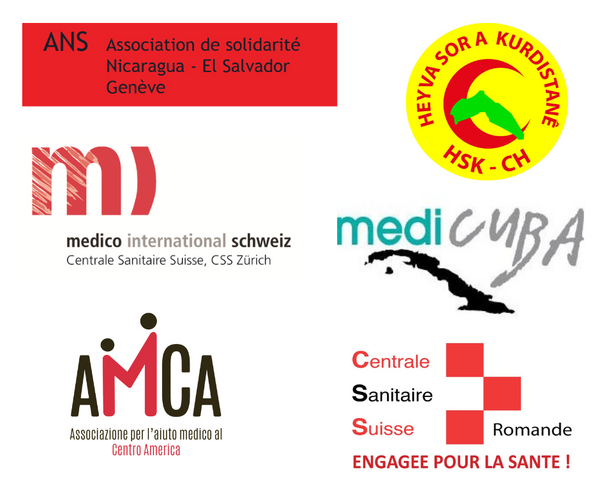
Cette pétition est lancée par différentes associations d’aide au développement ou d’aide humanitaire, concernées par les difficultés de transferts de fonds en Suisse: la Centrale Sanitaire Suisse Romande, mediCuba Suisse, l’Association de solidarité Nicaragua-El Salvador Genève, l’Associazione per l’Aiuto Medico al Centro America, medico international schweiz, l’Association Suisse-Cuba (section de Zurich) et le Croissant Rouge du Kurdistan Suisse
"(...) Bien que légalement l’aide humanitaire et au développement soient exemptées des sanctions économiques, des associations suisses connaissent depuis plusieurs années des entraves pour envoyer des fonds. Par obéissance anticipée envers les grandes puissances économiques, des banques comme l’UBS ou la Banque Cler et désormais des banques cantonales ainsi que PostFinance, refusent d’effectuer des transactions ou exigent une déclaration complexe pour les paiements. Ce blocage concerne aussi de petits virements qui ne sont pas destinés à l’étranger, mais d’un compte privé suisse vers un autre compte bancaire suisse. Ainsi, les ordres de paiement internes peuvent être refusés dès que le mot «Cuba», «Iran», «Iraq», «Kurdistan» ou «Syrie» apparaît dans le système. Sans même envoyer de fonds dans ces pays!"
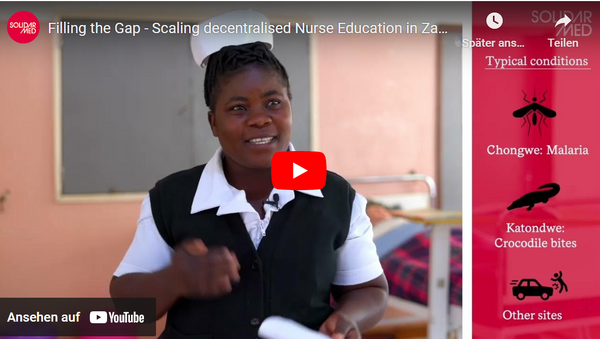
The short reports provide an insight into the training of medical licentiates and nurses, and the provision of housing for health workers in Zambia. The films are in English with German subtitles.
"Discover how SolidarMed, in partnership with the Hilti Foundation and the Lichtenstein Development Service, is transforming nurse education in Zambia. With a critical shortage of health professionals hindering the country's development and impacting the well-being of its population, SolidarMed has pioneered a decentralized approach to nurse training. Unlike the traditional centralized model, the Decentralized Nurse Training Model focuses on underserved rural nursing colleges and leverages existing rural hospitals and clinics to create a networked ecosystem of practical training sites. This innovative approach allows students to gain early hands-on experience, develop crucial clinical skills, and assist short-staffed hospitals and clinics in patient management. The benefits are far-reaching."
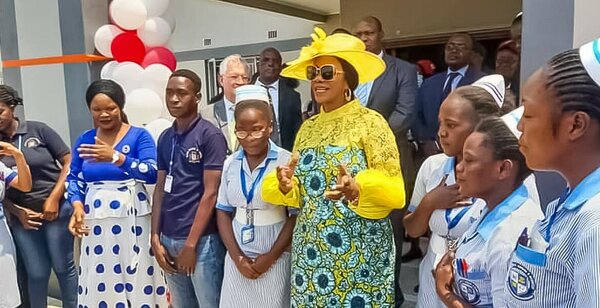
In enger Zusammenarbeit mit dem Gesundheitsministerium verbessert SolidarMed in Sambia die Ausbildung von Pflegepersonal und klinischen Ärzt:innen und macht mit der Schaffung von Wohnraum die Arbeit auch auf dem Land attraktiver.
"Es ist ein aussergewöhnlicher Tag für das SolidarMed-Team in Sambia. Vor dem frisch erstellten Ausbildungszentrum in Kafue steigt Sylvia Masebo, die Gesundheitsministerin von Sambia, aus dem Auto und schüttelt mit grosser Freude SolidarMeds Landeskoordinator John Tierney die Hand. Der Chor der Pflegefachkräfte singt und tanzt ihren Willkommenssong. «Die Eröffnung des ersten multidisziplinären Ausbildungszentrums in Sambia erfüllt uns mit Stolz und grosser Freude», sagt John Tierney zur Begrüssung. Ministerin Sylvia Masebo durchschneidet das rote Band und übergibt das Gebäude offiziell dem Distriktspital und der Pflegefachschule in Kafue zur Ausbildung von Studierenden und klinischem Personal."
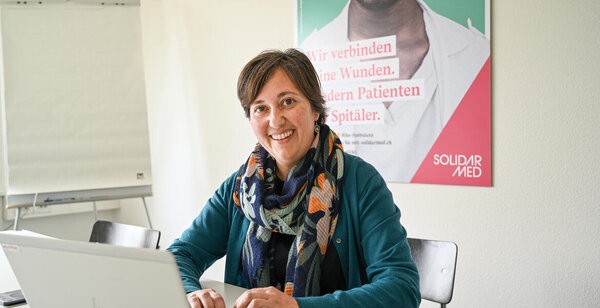
Lucia Gonzáles arbeitet im Bereich «Forschung und Entwicklung». Mit ihrer internationalen Erfahrung als Ärztin und Forscherin wirkt sie in verschiedenen Projekten mit. Im Interview erzählt sie, warum Forschung für sie als Ärztin eine Pflicht ist.
"Lucia, warum hast du Medizin studiert? Das ist eine lustige Geschichte. Ich hatte nie daran gedacht, Medizinerin zu werden. Ich wollte grundlegende Wissenschaften wie z. B. Astrophysik studieren. Aber meine Mutter war Pflegefachfrau für Pädiatrie in einem Spital. Ein Oberarzt, der mit ihr zusammenarbeitete, gab den Auslöser für meinen Entscheid zum Medizinstudium: Er sagte zu mir: «Willst du die Welt sehen und in deinem Leben unabhängig sein? Dann studiere Medizin.» Ich habe in der Medizin meinen Traum gefunden."
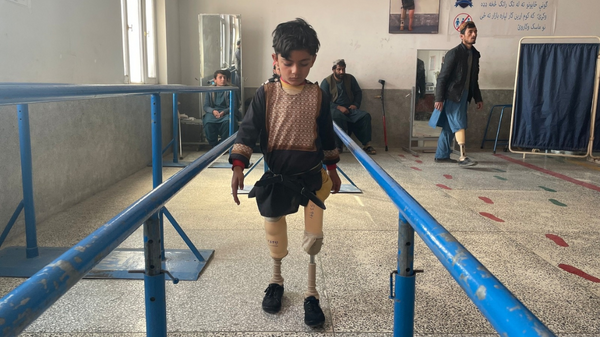
"Dans le monde, 2,4 milliards de personnes vivent avec un problème de santé pour lequel des soins en réadaptation pourraient être bénéfiques. Dans certains pays à revenus faibles ou intermédiaires, 50 % d'entre elles n'ont pas accès à ces services essentiels. A partir du 24 mai, à l’Assemblée mondiale de la santé à Genève, 194 pays voteront une résolution historique les engageant pour la première fois à développer et renforcer la réadaptation dans leurs systèmes de santé."
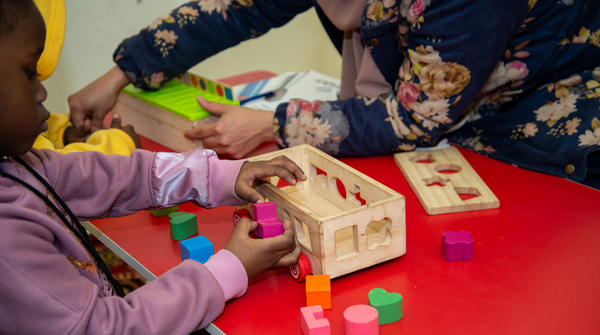
300'000 Soudanais devraient traverser la frontière et auront besoin d'aide humanitaire. Nous sommes prêts à aider les réfugiés et les communautés d'accueil.
"L'Égypte est devenue la principale destination des personnes fuyant le conflit qui a éclaté au Soudan le 15 avril, avec 42’300 arrivées à ce jour et possiblement 300’000 réfugiés au cours des six prochains mois. Nous préparons à lancer une intervention d'urgence avec des partenaires locaux afin de répondre à leurs besoins fondamentaux urgents et de soutenir les membres les plus vulnérables de leurs communautés d'accueil. Nous estimons que 25 % des réfugiés soudanais souffrent d'un handicap. Il est donc essentiel que la réponse humanitaire soit inclusive."
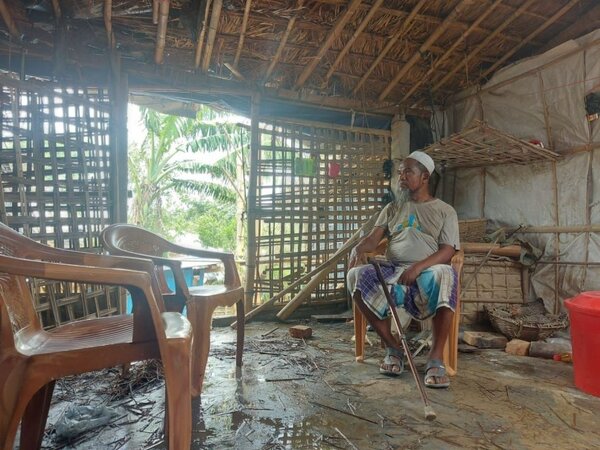
Le cyclone Mocha a frappé le Bangladesh et la Birmanie ce dimanche 14 mai. Nos équipes évaluent actuellement l’étendue des dégâts et les besoins dans les camps de réfugiés de Cox’s Bazar.
"Abdur, réfugié Rohingya de 57 ans, partiellement paralysé suite à un AVC, ne réalise toujours pas ce qu’il s’est passé ce dimanche. Quelques heures avant que le super cyclone ne s’abatte sur les collines de Cox’s Bazar, nos équipes lui ont proposé de l’évacuer dans un lieu où il serait plus en sécurité. Il a pu revenir sur les lieux après le passage de Mocha, son abri a été totalement détruit : « J’ai tout perdu, je dois me déplacer en béquilles. Si j’étais resté dans mon abri, je serais mort aujourd’hui. Je ne sais pas comment je vais pouvoir me nourrir, ou me déplacer dans les camps, je suis bloqué ici ».
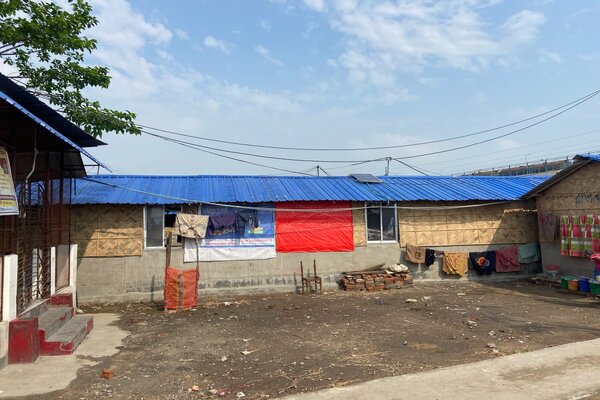
« Je vis dans le bidonville depuis 15 ans, dans une cabane en bambou d’une seule pièce sous un toit fait d’une bâche en plastique solidement attachée à des bâtons de bambou. Les dernières années ont été difficiles. Lors du super cyclone de 2020, appelé Amphan, nos maisons ont été décimées. Heureusement ce n’est plus le cas », explique Bani. Bani et 15 autres familles ont finalement pu dire adieu à leur abris précaire. Leurs nouvelles maisons d’une pièce, sont construites en briques, équipées de solides toits en tôle, de fenêtres coulissantes et de sols en ciment. Elles leur apportent la sécurité, le confort et la protection dont ils ont tant besoin contre les conditions météorologiques difficiles."
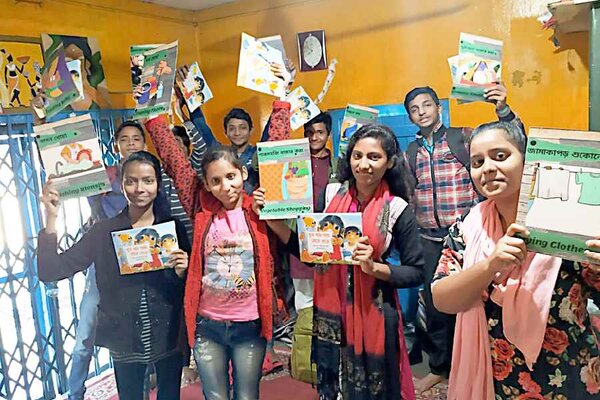
An organisation that works to end violence against women is using games to reach out to children to “generate a discussion” on gender stereotypes and how it creates discrimination in society.
"(...) The organisation has created flashcards where certain activities of everyday life like washing utensils, feeding a child, ironing, speaking at a public forum, vegetable shopping, drying clothes, changing a baby’s nappy, flying kites and reading a newspaper are shown without mentioning who is performing the activity, said Soumi Jana, preventive strategy team member, Swayam. (...) “We are trying to generate a discussion in society to re-define the roles assigned and expected of men, women and other genders. There are certain areas where the gender stereotypes are breaking but rigidity around gender roles still exists,” said Amrita Dasgupta, director, Swayam."
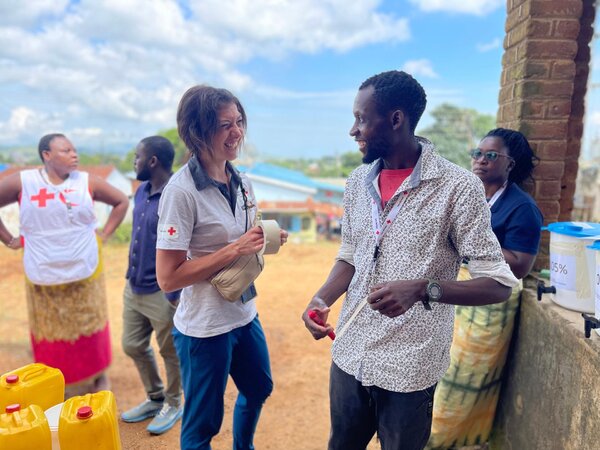
"Le Malawi vient de traverser la pire épidémie de choléra de ces vingt dernières années. Ariane Wilhem, infirmière du Val-de-Ruz, a passé un mois dans l’équipe de réponse au choléra de la CRS. Elle a notamment formé les bénévoles sur place. (...) Le Malawi est confronté à plusieurs défis. L’inflation a augmenté l’insécurité alimentaire. Des millions de personnes sont concernées et ne mangent plus à leur faim. Le passage du cyclone Freddy au mois de mars s’est ajouté à la liste des calamités. Les inondations ont dégradé les conditions d’hygiène, déjà précaires. A la suite de cela, la CRS a déplacé une partie de ses structures de lutte contre le choléra dans le sud du pays, particulièrement touché par Freddy."
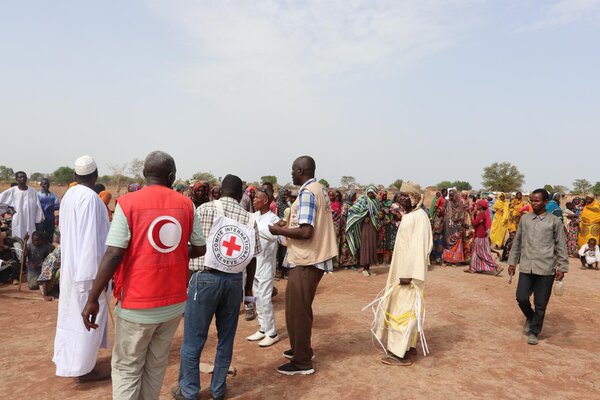
"La flambée de violence survenue au Soudan a fait basculer des centaines de milliers de personnes dans une grande détresse. La CRS a débloqué une première enveloppe de 500 000 CHF en réponse à l’urgence. Un logisticien du pool d’aide d’urgence de la CRS coordonne à Port-Soudan la réception et la distribution des biens de secours du Mouvement international de la Croix-Rouge et du Croissant-Rouge. Le manque de fournitures médicales est criant au Soudan. Les deux tiers des hôpitaux et la plupart des dispensaires ne sont plus en service. Ils ont été endommagés ou pillés lors des combats qui font rage de manière persistante depuis la mi-avril. Or un grand nombre de blessés ont urgemment besoin de soins."
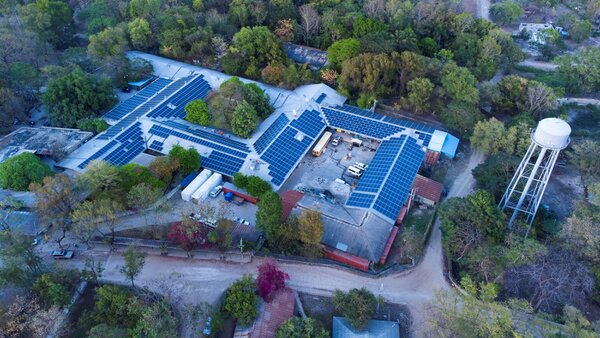
Mitteilungen aus Haiti - Mai 2023
"Die sicherheitspolitische Situation in Haiti hat sich auch in diesem Jahr nicht verbessert. Dank des riesigen Einsatzes der nun ausschliesslich haitianischen Mitarbeitenden des HAS konnten trotzdem alle Kranken und Verletzten behandelt werden! Am Anfang dieser Mitteilungen schauen wir deshalb zurück auf die Gründung dieses ausserordentlichen Spitals vor 67 Jahren durch Larimer und Gwen Mellon: WIE EIN LEUCHTTURMPROJEKT ENTSTEHT. Die rund 500 Pflegenden, Ärzte, Techniker und Leiter des HAS sorgen mit Hilfe Ihrer Solidarität dafür, dass das HAS weiterhin ein Leuchtturm in Haiti bleibt!"
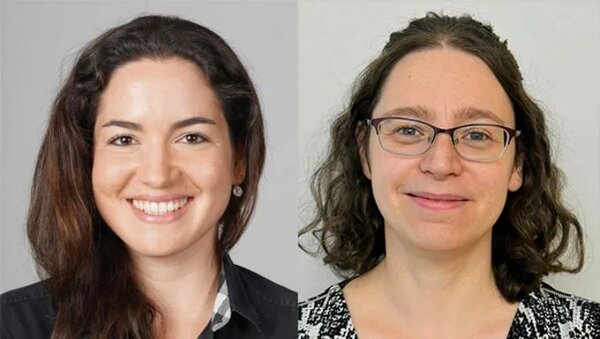
"Tiffany Bouchery and Katharina Röltgen have been awarded temporary assistant professorships at Swiss TPH and the Faculty of Science at the University of Basel as part of the SNSF PRIMA funding program. Bouchery develops targeted clinical approaches for the elimination of parasitic worm infections. Röltgen researches B cell and functional antibody responses to SARS-CoV-2 and other human coronaviruses in Africa."
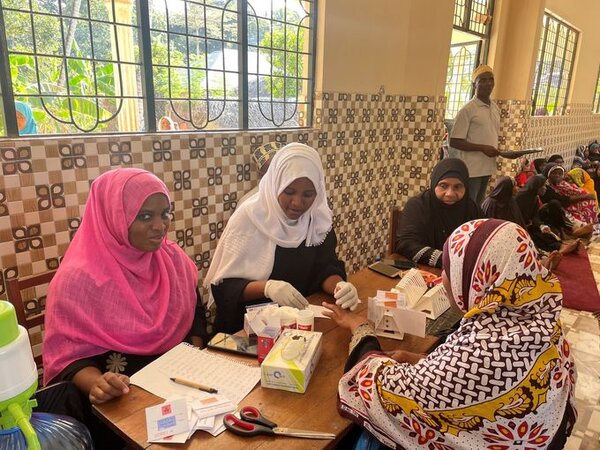
Communiqué de presse
"Un nouveau candidat médicament donne des résultats prometteurs dans le traitement des infections par des vers parasites. Des chercheurs du Swiss TPH ont testé l’efficacité et la sécurité de l’emodepside contre les trois plus importants helminthes transmis par le sol sur l’île Pemba en Tanzanie. L’emodepside est le premier nouveau médicament prometteur contre les infections par des vers parasites depuis plusieurs décennies. Le Swiss TPH travaillera désormais avec Bayer afin de poursuivre le développement du médicament."
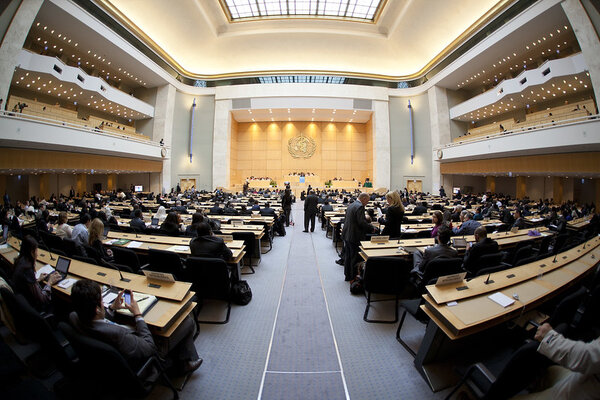
Les divisions géopolitiques ont été au cœur de l'Assemblée mondiale de la Santé (MS) cette année et ont retardé certaines décisions. Néanmoins, un certain nombre de décisions ont pu être mises en place. Il s'agit notamment de l'amélioration des services de réhabilitation, de l'amélioration de la santé des peuples autochtones et de l'adoption de nouvelles lignes directrices mondiales pour la lutte contre les maladies non transmissibles (MNT). Après de longues discussions, il a été convenu de se concentrer sur les quatre principaux facteurs de risque des MNT : le tabac, l'alcool, une mauvaise alimentation et l'inactivité physique. Parmi les décisions moins médiatisées, mais extrêmement importantes, figuraient des recommandations sur l'enrichissement des aliments en micronutriments. Trois milliards de personnes n'ont pas accès à une alimentation saine et certaines sont massivement menacées par une carence en micronutriments. L'AMS s'est achevée sur des paroles d'avertissement du directeur général de l'Organisation mondiale de la santé, le Dr Tedros Adhanom Ghebreyesus : il a souligné qu'il ne restait plus qu'un an pour adopter le traité sur les pandémies. Il a également insisté sur l'importance de contrer les informations erronées qui circulent sur le traité. Les affirmations selon lesquelles l'OMS obtiendrait des pouvoirs étendus grâce à ces accords sont tout simplement des "fake news", a déclaré Tedros Adhanom Gebreyesus. En revanche, il s'est dit très satisfait de l'augmentation des cotisations des membres.
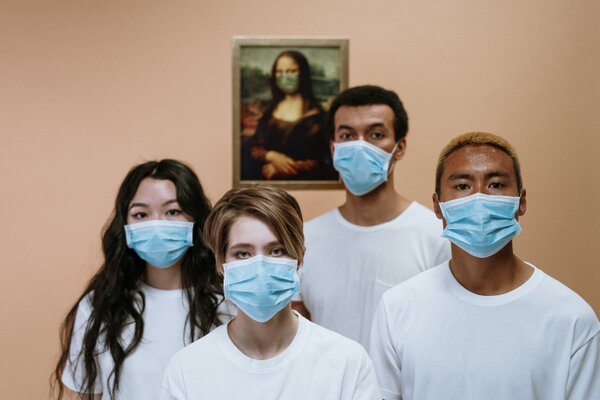
Un plaidoyer en faveur de la responsabilité collective pour mieux faire face aux futures pandémies
La pandémie a changé le monde de manière permanente et nous devons être prêts à réagir à un prochain agent pathogène. Cependant, ce projet d'accord de l'OMS sur les pandémies montre que nous sommes peut-être sur le point d'ignorer ce que nous avons appris au cours des trois dernières années et de gâcher la chance d'assurer notre avenir. Nous avons besoin d'un changement fondamental dans la manière dont nous abordons le financement - un changement qui permettrait aux pays en développement de disposer de l'espace fiscal dont ils ont tant besoin pour investir dans la santé. L'accord sur les pandémies doit créer un système qui permette des avancées significatives dans notre préparation à l'avenir et qui aille au-delà des structures traditionnelles de financement de la santé mondiale. L'accord doit être fondé sur le partage des connaissances, l'accès et la transparence.
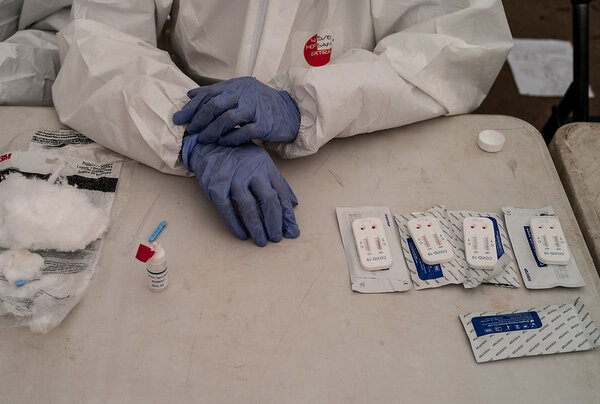
Mesures nécessaires pour réagir de manière adéquate en cas de nouvelle pandémie
Selon de nombreux délégués présents à l'Assemblée mondiale de la santé (AMS), la volonté politique de prévenir une nouvelle pandémie s'affaiblit de plus en plus et menace des initiatives telles que la production locale de vaccins. Les pays sont confrontés à de nombreux problèmes post-pandémiques, notamment économiques, et la préparation à une prochaine pandémie n'est plus une priorité. Ce qui est également préoccupant, c'est que de nombreux politiciens ne sont pas au courant des négociations de l'accord sur la pandémie, et encore moins de la préparation à de nouvelles pandémies. La résolution adoptée à l'AMS pour renforcer les pays en matière de tests de diagnostic et la production locale d'instruments de diagnostic, de tests et de vaccins dans les pays à revenu faible et intermédiaire est donc d'autant plus importante. Ainsi, l'autorité sanitaire africaine s'est fixée l'objectif audacieux d'acheter 60% des vaccins dont elle a besoin auprès de fabricants africains d'ici 2040, une tâche presque impossible sans investissements massifs. La Banque mondiale estime que les LMIC devront investir environ 30 milliards de dollars par an au cours des cinq prochaines années pour se prémunir contre les pandémies.
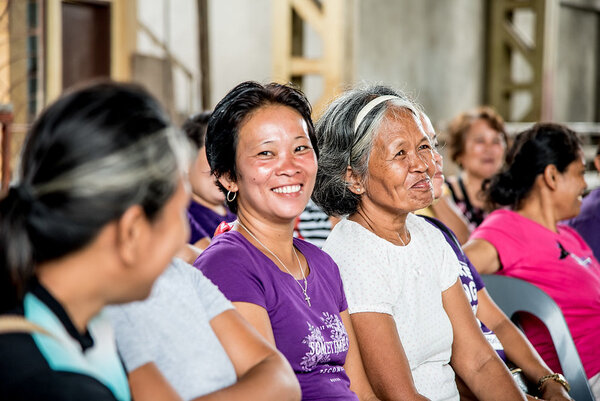
One of the most important events: Summary of the WHA side event "Institutionalizing social participation for PHC, UHC and health security"
"There was a full house at the Restaurant Vieux-Bois for the WHA side event, Institutionalizing social participation for PHC, UHC and health security. The event, which took place on 22 May in Geneva, was co-hosted by Thailand, Slovenia, Norway, Brazil, Tunisia, Madagascar, UHC2030, CSEM and UHC Partnership. (...) “Our event is relevant as ever,” began Ms Ingvild Kjerkol, honourable Minister of Health and Care Services, Norway. “To enhance resilience in the face of multiple crises, governments should prioritize building public trust as a policy objective.” She went on to explain how social participation is a key driver of public trust. She noted the critical role of citizen input on Norway’s framework for priority setting; legal frameworks and institutions; and fairness, equality, inclusivity, diversity and transparency for fair processes and to avoid tokenism."
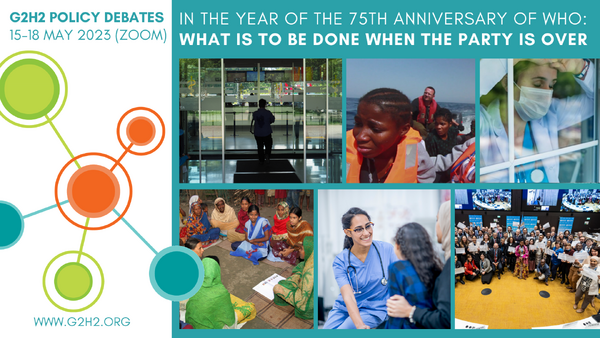
In the year of the 75th anniversary of WHO: What is to be done when the party is over?
"In the year of the 75th Anniversary of the World Health Organization, and in the week before the 76th World Health Assembly (WHA76), a series of meetings hosted by the Geneva Global Health Hub (G2H2) and organized by some of its members provided a space for sharing, assessing and debating health policy and governance challenges that went beyond the items covered by the formal agenda of the WHA, bridging from health policies to people’s realities, addressing determinants of health and promoting democratic governance."
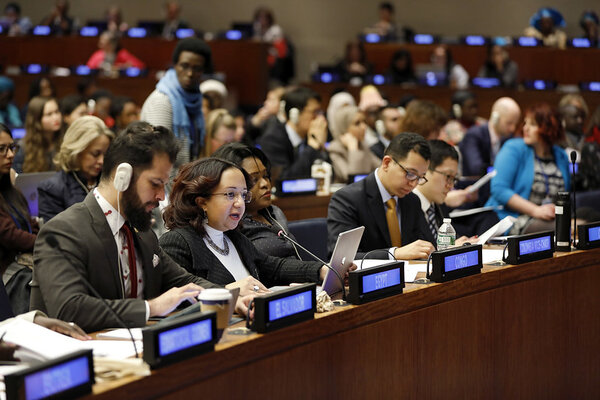
African member-states re-asserted demands that at least 75% of the budget should go to offices outside of the Geneva headquarters
"World Health Organization member-states greenlighted a budget of $6.83 billion for 2024-25 for the global health agency – an 11% increase over the 2022-23 budget. Implicit in the budget is member-state implementation of a stepwise increase in assessed contributions. (...) The gradual increase in country assessments aims to correct WHO’s current over-dependence on earmarked “voluntary contributions” – money that is donated by a member state or philanthropy."

Une réflexion de Thomas Vogel, économiste de la santé et spécialiste de la santé publique, sur l’action humaine et ses contradictions
Les entreprises humaines, lorsqu’elles reposent sur des efforts collectifs et coordonnés, sont fragiles. Cela est d’autant plus vrai lorsque les bénéfices individuels sont du domaine du probable et non du certain. La réalisation de buts communs se heurte aux intérêts individuels ainsi qu’à la préférence pour la récompense immédiate, plutôt qu’un bienêtre plus distant. L’idéal de la « santé pour tous » est-il de ceux qui pâtissent de la tension entre intérêt individuel et bienêtre collectif ?
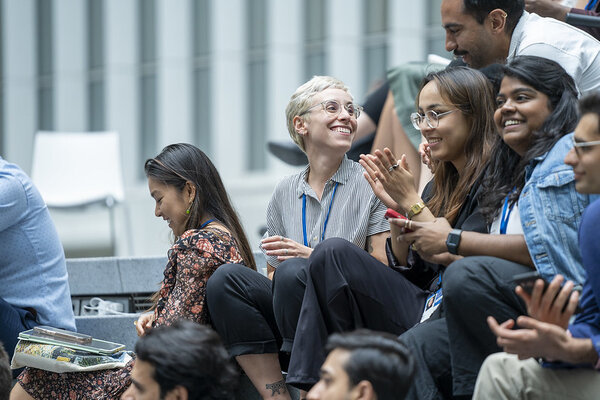
Un rapport d'avant-garde qui plaide pour l'évaluation et la mesure de ce qui compte vraiment - le bien-être humain et planétaire - plutôt que de poursuivre la croissance économique et la maximisation du PIB sans se soucier de leur impact.
Le bien-être physique et mental pour tous doit être un objectif central des économies nationales, et pas seulement un tremplin vers d'autres objectifs. Aujourd'hui, il est plus clair que jamais que l'activité économique doit être en accord avec la santé des personnes et de la planète. Nous avons besoin d'une nouvelle approche économique qui considère le financement de la santé comme un investissement et non comme une dépense, et qui considère que le bien-être et l'économie sont liés. La pandémie de Covid-19 était une catastrophe évitable et le résultat de notre échec collectif. Une autre approche est possible. Les États peuvent passer d'une approche réactive pour remédier aux défaillances du marché à une approche proactive et coopérative pour concevoir des marchés qui donnent la priorité à la santé humaine et planétaire. Dans un rapport novateur, des femmes scientifiques mandatées par l'OMS et dirigées par le professeur Mariana Mazzucato ont élaboré des recommandations approfondies sur la manière de redéfinir la relation entre l'économie et la santé.

The United Nations has warned that “cascading and interlinked crises” are jeopardizing not just the 2030 Agenda for Sustainable Development, but “humanity’s very survival.” Mitigating the threat requires a radical reform of international finance, based on a market-shaping paradigm that advances the common good. By Mariana Mazzucato
"The International Monetary Fund and the World Bank recently held their annual spring meetings, which, according to the organizers, produced a “strong message of confidence and a willingness to cooperate.” But lofty rhetoric and good intentions will not be enough to create a truly inclusive and sustainable economy fit for the twenty-first century. For that, deep structural change is needed. Some are calling for it. Mia Mottley, the prime minister of Barbados, advocates a “New Consensus” between wealthier and less wealthy countries. Similarly, UN Secretary-General António Guterres has called for a “Common Agenda” – a roadmap for global intergovernmental cooperation aimed at moving from “ideas to action.”
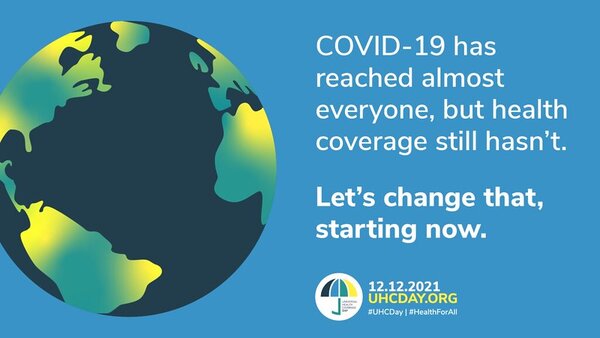
"Since 2018, this Lancet Commission has sought to understand how to maximise synergies between the global health agendas of universal health coverage, health security, and health promotion, and what drives dis-synergies. (...) Societies can and should pursue the agendas of universal health coverage, health security, and health promotion synergistically. We note that maximising synergies is important for both infectious and non-infectious diseases, and both endemic and epidemic diseases. However, we observed that, in countries at all income levels, counterproductive competition and fragmented investment are too often present in the implementation of these agendas, undermining the ability of health systems to achieve any of them—what we refer to as dis-synergies. For example, as highlighted by our in-depth country case studies, in some contexts, investments in health security detract from attempts to achieve universal health coverage, or efforts towards universal health coverage miss opportunities to promote healthy lives (ie, health promotion). Such dis-synergies weaken health systems, making them less able to cope with day-to-day and emergency demands, and render people more vulnerable to serious disease, as we saw with the COVID-19 pandemic."
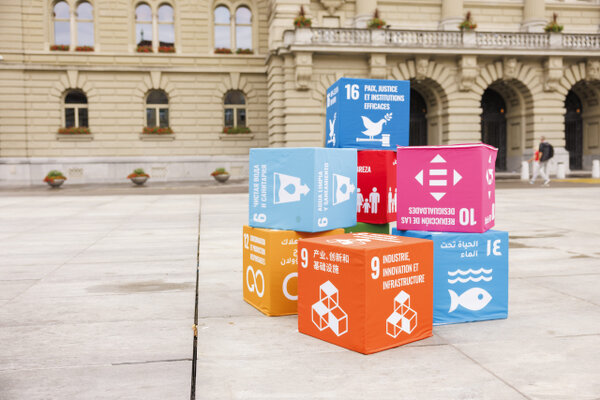
"L’an dernier, la Suisse a amélioré son rang mondial pour atteindre les Objectifs de développement durable (ODD). La société civile y a largement contribué face aux crises qui se superposent. Leurs organisations ont entraidé dans l’urgence, pour assurer une vie décente aux plus faibles – ici et ailleurs. Elles ne laissent personne de côté, en rappelant les droits humains et les droits au travail."
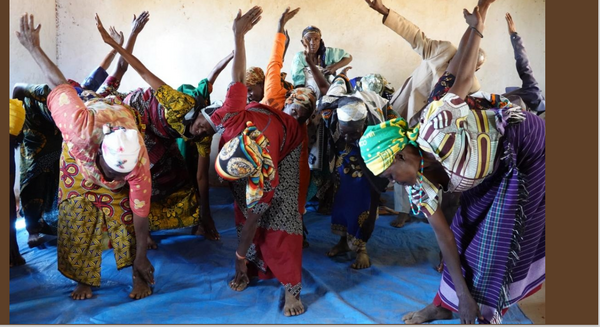
Presentations from MMS Round Table, 22 May 2023
The presentations from the three speakers Dr Christopher Mikton (WHO), Alexandra Papis (Swiss Red Cross) and René Schraner (Kwa Wazee) can be accessed here. The UN Decade of Healthy Ageing 2021-2030 was proclaimed by UNGA and endorsed by WHO member states in 2021. The decade is focused on four action areas and four enablers.

"Global Trouble" - Der Podcast von medico international
"Die EU möchte Migration verhindern – und das bereits außerhalb ihrer eigentlichen Grenzen. Welche Auswirkungen das hat, zeigt ein Blick auf die Situation im Niger. (...) In dieser Folge von Global Trouble sprechen wir mit Kerem Schamberger über die Situation im Niger. Er ist in der Öffentlichkeitsarbeit von medico international für den Bereich Flucht und Migration zuständig und hat das westafrikanische Land besucht. Gemeinsam mit den medico-Partnerorganisationen „Alarmphone Sahara“ und „Border Forensics“ blicken wir auf die Folgen von Europas Externalisierung des Grenzregimes."
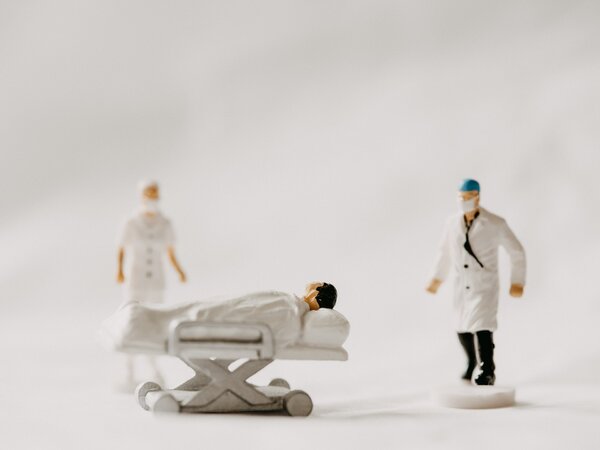
Patient safety is a critical global public health issue, fundamental to strengthening health systems, and is at the heart of universal health coverage (UHC).
"All WHO Member States and partners are striving to progress towards UHC and achieve Sustainable Development Goals. Patients, their families, and caregivers play a critical role in advancing safer care by shifting the paradigm of patient-centredness from care designed “for patients” to care designed “with patients”. Evidence shows significant gains in trust towards health systems, better patient satisfaction, improved safety and, reduction of harm in health care provision, and improved health outcomes when patients are treated as partners in their care. (...) In order to create a mechanism to reflect patient voices for improving patient safety, the WHO calls for patient stories. The stories we call for include those about avoidable harms, near misses, or best practices in the delivery of safe health care."
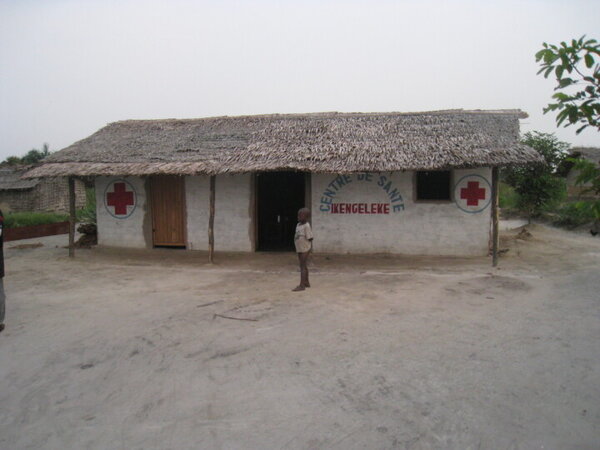
I herewith invite you to join an emerging community of practice hosted by the Medicus Mundi International Network to explore, in a mixed team within and beyond our membership, the role of international health cooperation and global health in climate change and planetary health.
"With the community, we want to create a space of sharing experiences, knowledge and reflection between and explore what is to be done among organizations and people that are dealing with these topics: NGOs, academia, health institutions, and a broad range of social movements and civil society activists. While we want to use a perspective of global solidarity and decolonization, we need to have, in the team, participants with real experiences of what climate change and planetary health means at the place they live and work."
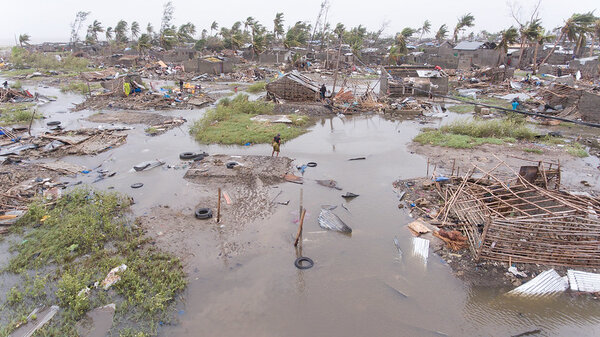
Das Klimaschutz-Gesetz ist ein erster Schritt zu mehr Klimagerechtigkeit, betonen unisono die acht Geschäftsleiter:innen von Alliance Sud und ihren Mitgliedsorganisationen.
"Es ist Zeit, dass die Schweiz ihren Beitrag zur Bekämpfung der weltweiten Klimakrise leistet. Die schlimmsten Auswirkungen der Erderwärmung treffen die ärmsten Menschen im Globalen Süden, die den Klimawandel am wenigsten befeuern. Der Zyklon «Freddy» brach im März dieses Jahres mehrere Weltrekorde. Der tropische Sturm, der über 1’000 Menschenleben in Malawi, Mosambik und Madagaskar forderte und eine Spur der Zerstörung hinterliess, war mit mehr als einem Monat Dauer der längste je gemessene tropische Sturm. Und er akkumulierte so viel Energie wie kein anderer Zyklon zuvor."
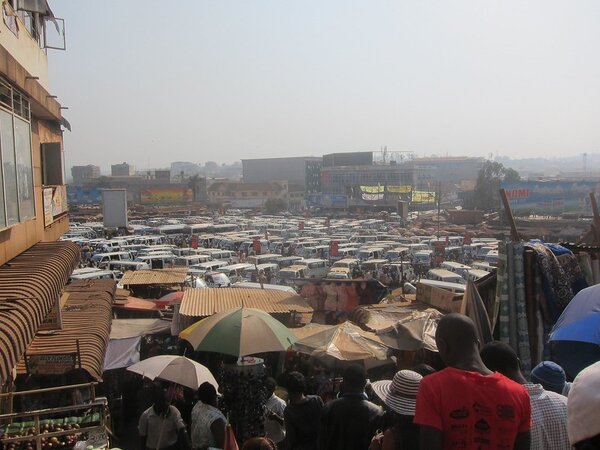
World is on track for 2.7C and ‘phenomenal’ human suffering, scientists warn
"Global heating will drive billions of people out of the “climate niche” in which humanity has flourished for millennia, a study has estimated, exposing them to unprecedented temperatures and extreme weather. The world is on track for 2.7C of heating with current action plans and this would mean 2 billion people experiencing average annual temperatures above 29C by 2030, a level at which very few communities have lived in the past. Up to 1 billion people could choose to migrate to cooler places, the scientists said, although those areas remaining within the climate niche would still experience more frequent heatwaves and droughts."
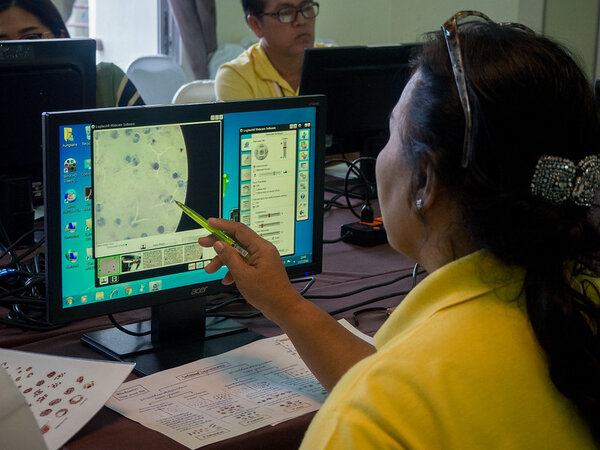
By Peter Sands, Executive Director of the Global Fund
"The next global health crisis might not be another pandemic caused by a novel respiratory infection. Instead, we could see climate change dramatically increasing the threat from an existing infectious disease–for example, malaria, a disease that kills one child every minute of every day. Malaria, like other vector-borne diseases, reacts quickly to changes in climate, with epidemiology of the disease evolving rapidly in response to shifting rainfall patterns and warmer temperatures. Already we are seeing malaria cases at higher altitudes in places like Ethiopia and Kenya, where up to now low temperatures offered protection from mosquitoes. The increasing frequency of extreme weather events, such as violent cyclones and unforeseen floods, lead to sudden surges in malaria infections and deaths."
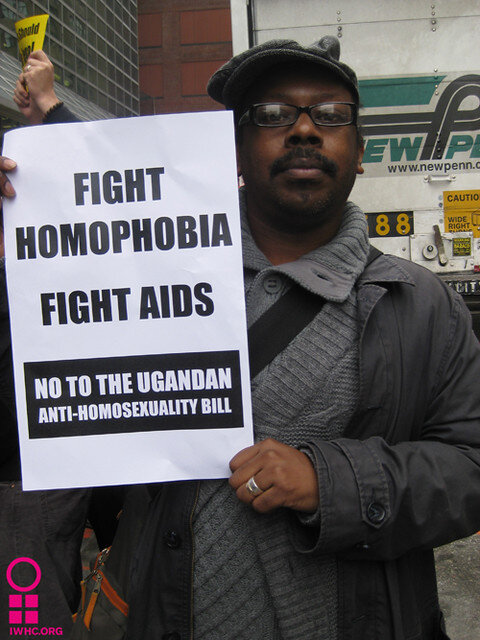
Dans un communiqué de presse commun, les trois organisations expriment leur inquiétude face à l'une des lois anti-homosexualités les plus extrêmes au monde, qui a été adoptée en Ouganda en 2023. Cette loi compromet gravement les succès de la lutte contre le VIH/sida en Ouganda, qui avait fait de grands progrès dans le pays. Elle favorise la stigmatisation et, pire encore, elle attise la haine et l'auto-justice avec des conséquences négatives sur la santé publique. Les personnes de la communauté LGBTQ n'osent plus sortir dans la rue ou sont arrêtées et torturées sans raison. L'Ouganda était sur la bonne voie pour atteindre les objectifs de l'ONUSIDA en matière de lutte contre le VIH. Ces progrès ne doivent pas être réduits à néant.
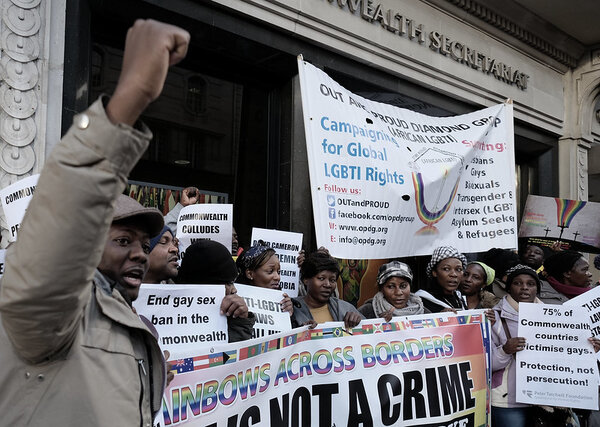
In this moving account, an African Aids activist describes her relationship with her gay son and her fears over Uganda’s homophobic bill that criminalises his sexuality
"A toxic wave of homophobia is surging across east Africa. It is crashing down in Uganda, where members of parliament recently passed a bill that makes being gay a crime punishable by death and not reporting homosexuality a criminal offence. The most common refrain echoed by the anti-gay movement is that homosexuality is “un-African”. That belief is totally unfounded and ahistorical. As an African mother who has raised a gay child, it breaks my heart to hear such arguments. I know that my son and thousands of other children across Africa are both gay and fully, proudly African."
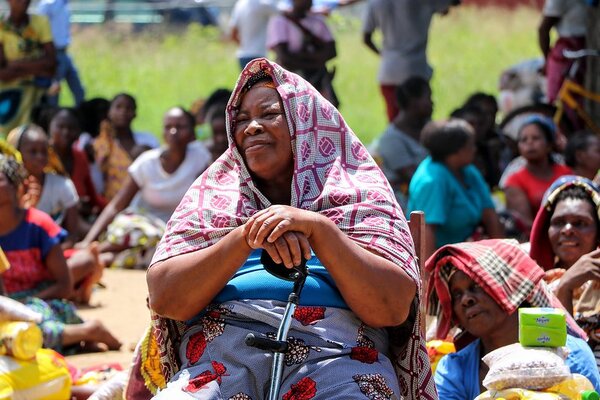
"GENEVA/MAPUTO - The Global Fund to Fight AIDS, Tuberculosis and Malaria has committed nearly US$1 million in emergency funding to Mozambique to mitigate the impact of the floods and Cyclone Freddy on malaria programs in the southern provinces of the country. The devastation caused by the cyclone has increased the risk of malaria transmission, particularly for displaced populations, due to the increase in stagnant water bodies that become mosquito breeding sites, the washing away of insecticide in recently sprayed houses, and the loss of mosquito nets."
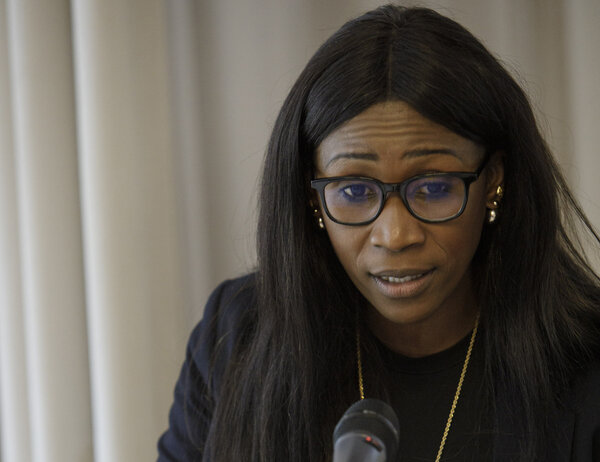
Radio Rabe: Sendung vom 25. April 2023
Aus Anlass unserer diesjährigen MMS Konferenz "Sexual Helth and rights under pressure" hat die Redaktorin Sarah Heinzman von RaBe-Info ein Interview mit Fatou Diatta, einer unserer drei senegalesischen Referentinnen geführt. Fatou Diatta, alias Sister Fa, ist eine senegalesische Rapperin, Sozialarbeiterin und Aktivistin. Sie kämpft vor allem für Frauenrechte in der patriarchalischen Gesellschaft des Senegal und gegen die weibliche Genitalverstümmelung. Obwohl offiziell verboten, wird die Genitalbeschneidung im Senegal weiter praktiziert, begründet mit religösen Überzeugungen. Das Thema ist ein Tabu, aber mit ihrer Musik gelingt es Fatou Diatta, vor allem die junge Bevölkerung zu erreichen.
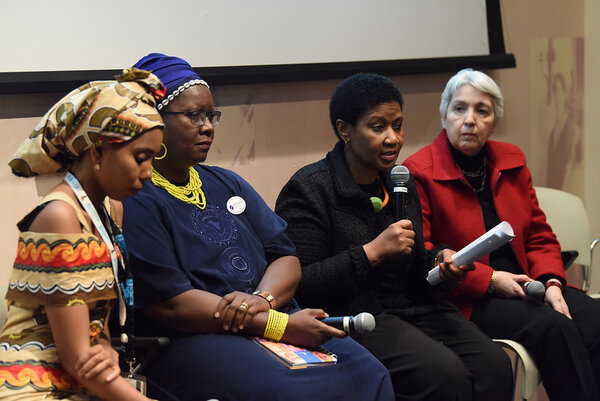
"As the final decade of acceleration towards zero new cases of Female Genital Mutilation (FGM, SDG Target 5.3) by 2030 has begun, increasing the rigour, relevance, and utility of research for programming, policy development and resource allocation is critical. This study aimed to synthesize and assess the quality and strength of existing evidence on interventions designed to prevent or respond to FGM between 2008 and 2020.The study drew on a Rapid Evidence Assessment of the available literature on FGM interventions. The quality of studies was assessed using the ‘How to Note: Assessing the Strength of Evidence’ guidelines published by the Foreign, Commonwealth and Development Office (FCDO) and strength of evidence using a modified Gray scale developed by the What Works Association. Of the 7698 records retrieved, 115 studies met the inclusion criteria. Of the 115 studies, 106 were of high and moderate quality and were included in the final analysis."
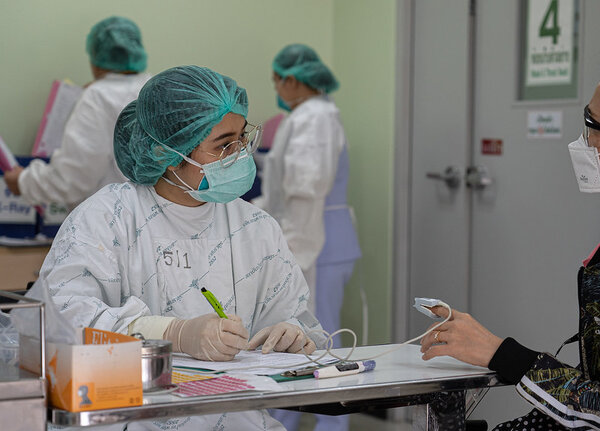
"Health workforce challenges hinder progress towards universal health coverage, improved health outcomes and health security. The global health workforce shortage is declining, but progress is slower in the African and Eastern Mediterranean regions and Small Island Developing States. International migration of health workers, when not adequately managed, can exacerbate pre-existing inequalities, further depleting the availability of health workers in countries already affected by shortages."
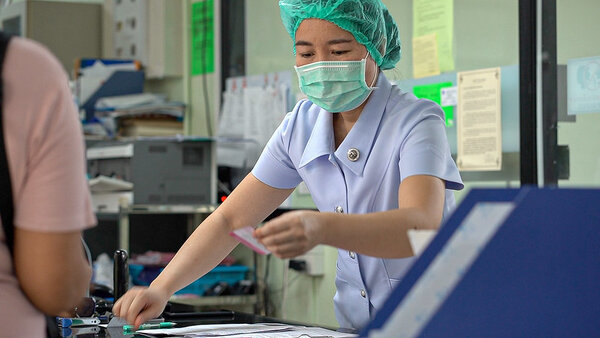
As the United Nations multi-stakeholder meeting on universal health coverage (UHC) convenes on Tuesday afternoon in New York, we urge that women health workers are properly recognized and rewarded
"The global health workforce crisis is no longer a looming possibility. It is a reality. Pre-pandemic the World Health Organization (WHO) projected a global shortage of 10 million health workers by 2030 and since then the situation has significantly deteriorated. Staff shortages are reported ever more frequently, health workers strike more often and high-income countries increase their incentives for nurses to move from low-income countries. So why is it that recent international documents on global health, including the G7 foreign ministers’ communique on 18 April, fail to acknowledge the crucial role of health workers in the achievement of universal health coverage (UHC)? Why don’t health ministers and heads of state address the real reasons for the emptying rosters, the rock-bottom morale and the sky-high burnout?"
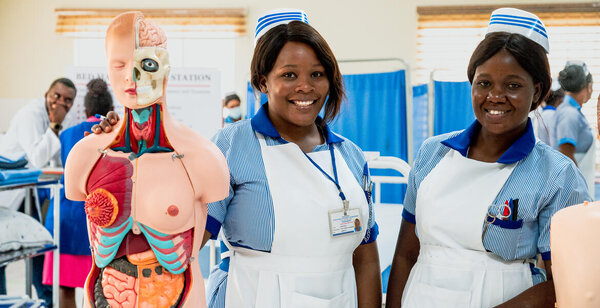
SolidarMed "Wir laden Sie dazu ein, unsere Projekte zur Stärkung des Gesundheitssystems in Sambia näher kennenzulernen. Unser Projektverantwortlicher, Patrick Thomas, wird Ihnen mehr über den Kontext, das Team vor Ort und unsere Tätigkeiten erzählen. Nutzen Sie die Möglichkeit mit ihm in den Dialog zu treten und Fragen zu stellen. Wir freuen uns, wenn Sie dabei sind. Jetzt anmelden."

Swiss TPH Are you curious to take a look inside our new headquarters "Belo Horizonte" in Allschwil (near Basel)? Would you like to know more about how we at Swiss TPH are improving people's health? Visit our Open House on Saturday, 17 June 2023 from 11 am to 4 pm to learn more about our research activities and global health projects. Our staff are looking forward to giving you an insight into their work. There will be music and food from around the world, as well as a marketplace, workshops and games.

Women Deliver WD2023 will promote a robust civic space for feminist action, organizing, and mobilization and will be more inclusive, diverse, accessible, and consultative than ever before. More than 6,000 leaders, influencers, advocates, academics, activists, and journalists from around the world will gather in Kigali, Rwanda with the drive to accelerate progress for girls and women everywhere. The landmark Kigali Convention Centre is an ideal location to host this world-class international event.
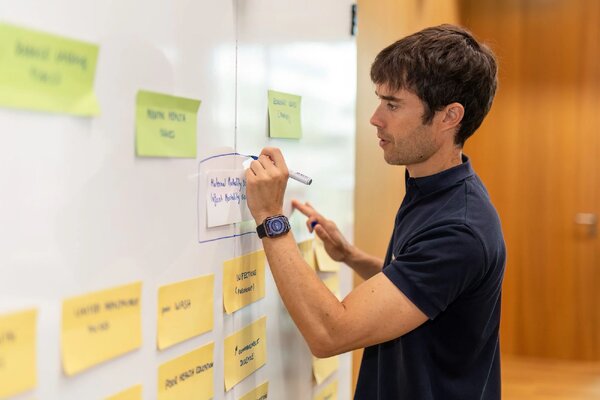
Swiss TPH In resource poor settings, health intervention managers and planners must give weight to strategies to successfully implement health projects and programmes, without losing sight of the demands and needs of populations. Therefore, the aim of this course is to equip participants with the knowledge and skills relevant to strategic planning, including approaches and tools for analysing the present situation (situation analysis), identifying problems and incorporating relevant stakeholders (priority setting).
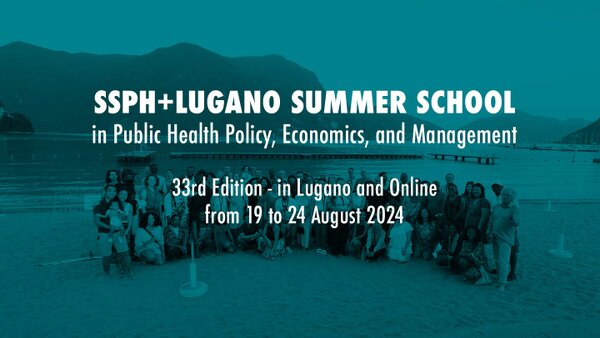
SSPH+ Lugano Summer School At the SSPH+ Lugano Summer School in Public Health Policy, Economics, and Management practitioners, researchers, and graduate students come together from all over the world for a unique learning experience focused on public health impact. The education obtained and networks created serve as an opportunity to reduce and prevent the gap between public health theory and practice. This year, we will gather in Lugano and online from 19 to 24 August 2024 offering 16 courses, 2 plenaries and several networking events. Each highly interactive course focuses on mutual learning for change and uses an active and engaged teaching style to help participants reflect on, develop, and expand transformational ideas. Information about fees, participation modality, and registration are available on our website: https://www.ssph-lugano-summerschool.ch/enroll. If you have any further question, you can contact us at info@ssph-lugano-summerschool.ch
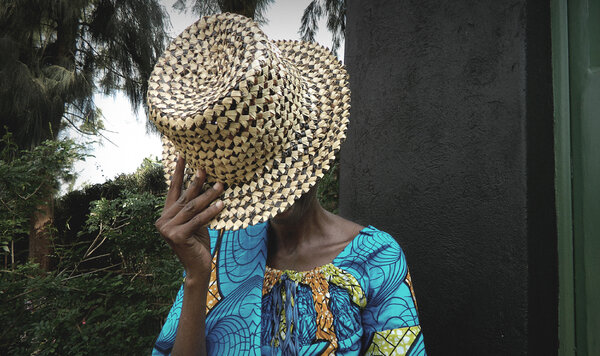
Medicus Mundi Suisse L’OMS définit la santé mentale comme un « état de bien-être qui permet à chacun de réaliser son potentiel, de faire face aux difficultés normales de la vie, de travailler avec succès et de manière productive, et d'être en mesure d'apporter une contribution à la communauté ».